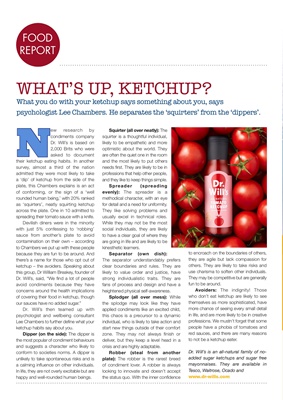
KIT
T1 telemedicine takes off; checks on T2 risks surge
CORONAVIRUS UPDATE (6)
T
ype 1 telemedicine is
taking off. A study has
given insights into the
use and perception of
telemedicine during the
COVID-19 pandemic among people with
Type 1 diabetes.
Researchers from the University of
Bern, Switzerland distributed an online
questionnaire via social media between
24 March and 5 May 2020 - 7,477 people
from 89 countries responded, and the
majority were from the USA (40.6%), UK
(17.5%), or Switzerland (9.8%). Overall,
28% said they had taken part in remote
consultations, while 31% said they
planned to use telemedicine in the future,;
approximately 80-90% of respondents
thought telemedicine was useful.
"Type 1 diabetes might be particularly
well suited to telemedicine because a lot
of consultations are mostly based around
review of glucose data and conversations
about therapy," and there is "increasing
use of continuous glucose monitoring,
insulin pumps, and smart insulin pens
alongside cloud- or screen-based datasharing," said co-author Sam Scott at
the virtual European Association for the
Study of Diabetes (EASD) conference in
September.
www.onlinelibrary.wiley.com
T2 risk checks surge
Almost 300,000 people have checked
their risk of Type 2 diabetes online less
than two months after the NHS fasttracked access to its Healthier You
Diabetes Prevention Programme.
Latest figures show that 291,325
people used the Diabetes UK Know
Your Risk tool since the end of July - a
637% increase compared to two months
previously.
Over 5,000 people have now selfreferred
for support to lose weight and
prevent the onset of Type 2 diabetes. The
programme has the capacity to support
5,000 people every week, and the NHS
is now urging even more people who are
at risk to check their risk and sign up.
People can use the online test, hosted
by Diabetes UK, to calculate their risk of
developing the condition by answering
basic questions including age, weight and
ethnicity.
If their score comes back as
sufficiently high, they can refer themselves
to a local service for support remotely or
online, without having to go through a
healthcare professional. They can choose
how to complete the programme, either
by joining group sessions by video link or
telephone with an experienced coach or
through digital support, which includes
online peer support groups and in some
areas, wearable tech.
Previously, people had to go to their
GP or visit a healthcare professional
and get a blood test before a referral,
but the risk of coronavirus has meant
that fewer people have had face-to-face
GP appointments and fewer people are
accessing blood tests.
riskscore.diabetes.org.uk
What's next?
Design company Milkwhale has
created an infographic summarising how
they see the future panning out. Click the
pic to download the full insights.